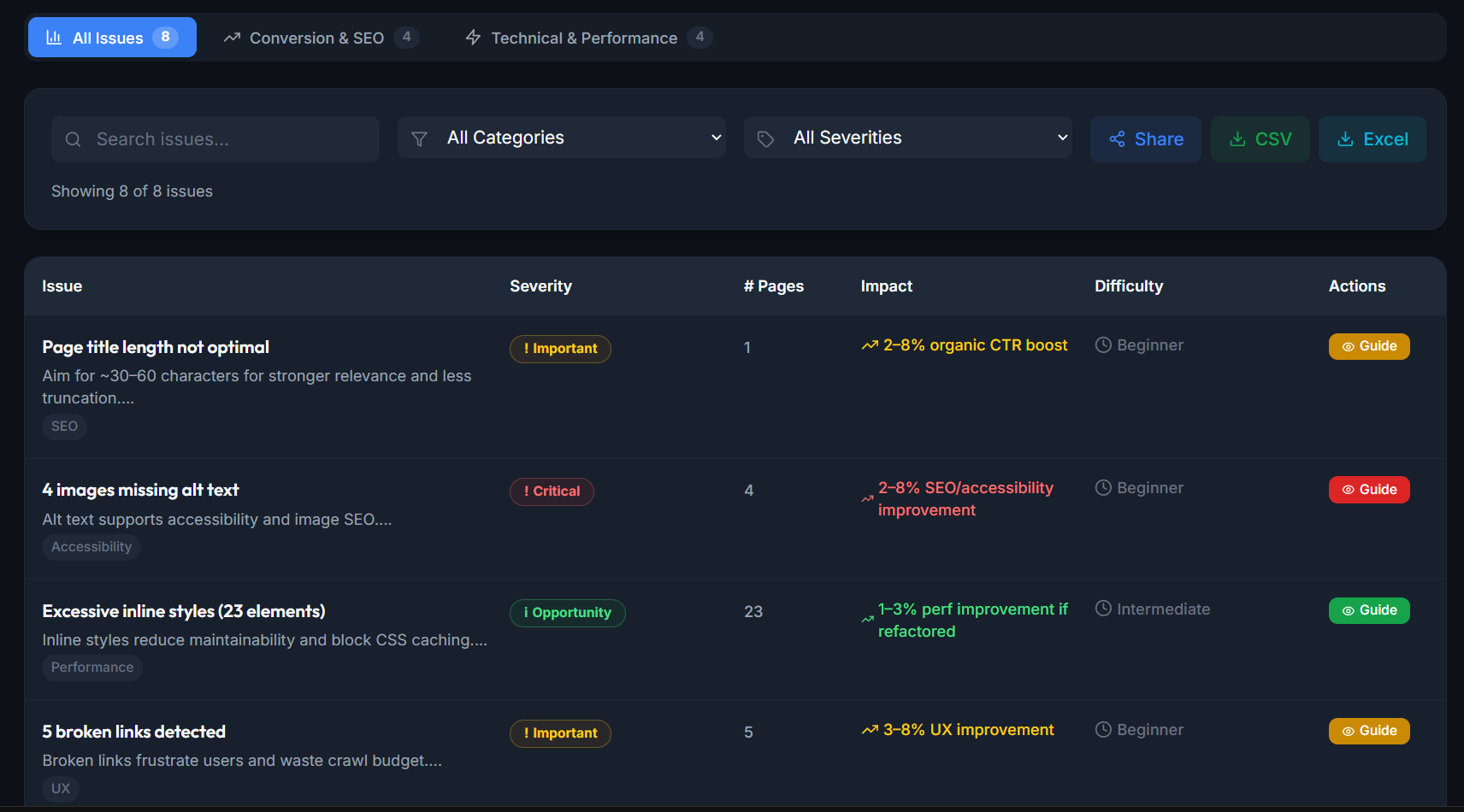A coded website is a page specifically programmed to function in a certain way and the most common coding languages are JavaScript, HTML & CSS. Coded websites offer benefits like improved functionality and enhanced user experience but can also have downsides such as high development costs and the need for specialized knowledge.
When businesses need powerful online platforms that go beyond simple informational websites, they require expertise in both frontend user experiences and backend technical capabilities. Full stack web development services deliver comprehensive, custom-built solutions precisely tailored to optimize specific business operations
Definition: What Is Coded Website?
Web coding uses languages like HTML, JavaScript and CSS to shape how a site looks and works. By writing code, developers can fully control design, add advanced features and optimise performance, whether for an e-commerce store, blog or business site, often combining several languages to get the job done.
7 Web Coding Languages - Build A Website
There are a variety of coding languages that website developers can use to create a web page. The most common languages include HTML elements and Cascading Style Sheets (Advanced CSS), but there are also other less common languages such as JavaScript code and PHP.
1. HTML Code - Hypertext Markup Language
Hypertext Markup Language is the foundational coding language used to create and structure content on the web. It allows to build web pages using a system of elements defined by tags and attributes.
✅ a) Basic Structure of HTML
<!DOCTYPE html>: Declares the document type and version of HTML (HTML5 is the current standard)<html>: The root element that contains all other elements<head>: Contains metadata, links to stylesheets and scripts<title>: Sets the web page's title<body>: Encloses the main content visible on the page
✅ b) HTML Elements, Tags, and Attributes
- Element =
<p>Hello</p>; Tag =<p>/</p>; Attribute =src="logo.svg"in extra details that modify a tag.
✅ c) Semantic HTML
- Use meaning-rich tags like
<header>,<nav>,<article>to give browsers and screen readers context, boosting SEO and maintainability.
✅ d) Accessibility and HTML
- Add
alttext, keep headings in order, pair<label>with inputs, ensure keyboard focus, and use ARIA only when native tags fall short.
2. CSS - Cascading Style Sheets
CSS stylesheet is another popular language for website development. It allows you to create dynamic and interactive web pages, with a variety of styling options. Whether you need to create a website template or add custom animations and effects, CSS is a powerful tool to help you achieve your design goals.
✅ a) Basic Structure of CSS
- Each rule pairs a selector with one or more declarations (
property: value;). This simple syntax is the foundation for everything else.
✅ b) CSS Selectors
- Element, class, ID, attribute, and pseudo-class selectors let you target exactly the nodes you want to style, from every
<p>tag to the third child of a list.
✅ c) CSS Box Model
- Content is wrapped in padding, border, and margin layers. Mastering these rings prevents layout “mystery gaps” and keeps designs pixel-perfect.
✅ d) CSS Layout Techniques
- Modern tools like Flexbox and Grid replace float hacks, making complex, multi-column or asymmetrical layouts clean and responsive.
✅ e) Responsive Design with CSS
- Media queries plus fluid units (
rem,%,vw) let a single codebase adapt seamlessly from mobile screens to 4K desktops.
✅ f) CSS Animations and Transition
transitionand@keyframesdeliver smooth fades, slides and micro-interactions - no JavaScript required.
✅ g) CSS Pre-processors
- Languages such as Sass and LESS add variables, nesting, and logic. They compile to vanilla CSS, streamlining large projects without sacrificing speed.
Popular CSS Frameworks
- Bootstrap
- Tailwind CSS
- Foundation
- Bulma
- Materialize
-------------------------------------------------------
3. JavaScript
JavaScript is a versatile coding language widely used in website development. It is popular for its ability to add vibrant features and functionality, such as animated menus and sliders to websites.
✅ a) Core Features
- Drives interactivity, updates content in real time, listens for events (clicks, keypresses), and works across all modern browsers while integrating smoothly with HTML & CSS.
✅ b) JavaScript Syntax
- Built on variables (
let,const), functions (declarations, arrows, callbacks), arrays & objects for data, plus modern ES6+ extras like template literals and modules.
✅ c) JavaScript and the DOM
- Directly reads and rewrites any part of the Document Object Model, letting you add elements, change styles, or respond to user actions without a page reload.
✅ d) Asynchronous JavaScript
- Promises,
async/await, and the browser’s event loop handle API calls, timers, and other long-running tasks without blocking the UI, keeping experiences smooth.
✅ e) JavaScript Frameworks and Libraries
- Has a rich ecosystem of frameworks and libraries that simplify development.
Popular JavaScript Frameworks
- React.js
- Angular.js
- Vue.js
- Svelte.js
-------------------------------------------------------
4. PHP - Hypertext Preprocessor
PHP is a server-side scripting language used in website development. It allows website developers to create an active web page that can handle large amounts of traffic and complex website functionality. With PHP, you can easily integrate databases into your website design and development process.
✅ a) Server-Side Execution
- Scripts run on the server, allowing dynamic content generation and improved security
✅ b) Database Integration
- Supports databases like MySQL, PostgreSQL, and MongoDB for creating data-driven applications
✅ c) Open Source and Cross-Platform
- Free to use and compatible with various operating systems, including Windows, Linux, and macOS
✅ d) Extensive Libraries
- Offers libraries for tasks like image processing and web services
✅ e) Wide Adoption
- Used in content management systems (CMS) like WordPress, Joomla, and Drupal
Popular PHP Frameworks
- Laravel
- Symfony
- Codelgniter
- WordPress
-------------------------------------------------------
5. SQL - Structured Query Language
SQL is a standard database query language used in website development. It allows web developers to easily store, retrieve, and manipulate data on websites. SQL is a powerful language that can be used to create complex website functionality.
✅ a) Data Retrieval
- Use the
SELECTstatement to extract data from databases
✅ b) Data Manipulation
- SQL allows for inserting, updating, and deleting data within a database
✅ c) Schema Definition
- Create and modify database structures like tables and indexes
✅ d) Transactions
- Execute multiple operations as a single unit to ensure data integrity
✅ e) Security
- Provide robust security features, including user authentication and access control
Popular SQL Databases
- MySQL
- PostgreSQL
- Microsoft SQL Server
- Oracle Database
- SQLite
-------------------------------------------------------
6. Ruby on Rails
Ruby on Rails is a web application framework written in the Ruby programming language. It is a popular choice for website development in London because it allows website developers to create complex website functionality with less code.
✅ a) Productivity Super-Powers
- Generators scaffold models, views, and controllers in seconds, while Ruby’s clean syntax keeps codebases readable and maintainable.
✅ b) MVC Architecture out of the Box
- Rails enforces a clear Model-View-Controller pattern, separating business logic from presentation so teams can work in parallel.
✅ c) Rich Gem Ecosystem
- Thousands of open-source “gems” (plugins) add authentication (Devise), payments (Stripe), search (Elasticsearch), and more with a single command.
✅ d) Built-in Security & Testing
- Protections against XSS, CSRF, and SQL injection come standard, and Rails ships with RSpec and Minitest for test-driven workflows.
✅ e) Scalability Options
- Caching, background jobs (Sidekiq), and easy horizontal scaling on platforms like AWS or Heroku let apps grow from startup MVP to enterprise traffic.
-------------------------------------------------------
7. Python
Python is a versatile coding language that website developers can use to create dynamic and interactive website features. With Python, website developers can easily build complex website applications with less code.
✅ a) Expressive Readable Code
- Indentation-based syntax reduces boilerplate, so even large projects stay approachable and easy to refactor.
✅ b) First-class Web Frameworks
- Django delivers a full MVC stack with an admin panel and security defaults; Flask and FastAPI provide lightweight, micro-service agility.
✅ c) Rich Plugin Ecosystem
- Thousands of PyPI packages drop in features like payment gateways, real-time chat, or AI-driven recommendations with a single pip install.
✅ d) Data & AI integration
- Native access to pandas, TensorFlow, and PyTorch means you can weave analytics, personalisation, or ML models directly into your web app.
✅ e) Asynchronous Performance
- Asyncio, Starlette, and uvicorn unlock non-blocking IO and WebSocket support, keeping apps snappy under high concurrency.
✅ f) Dev-friendly Tooling
- Virtual environments, type hints, and linters (Black, Ruff) create predictable builds and consistent style across teams.
✅ d) Scalable & Cloud-ready
- Works seamlessly with serverless platforms (AWS Lambda), container orchestration (Kubernetes), and traditional VPS setups.
Coding Courses - Website Builders
HTML Courses
Learning the basics of HTML elements is easy and quite straightforward If you want to learn HTML these online courses are a great place to start:
- Udacity: great for beginners
- SkillShare: a good option for busy people
- Coursera: versatile to learn web apps
- Udemy: flexible learning courses
-------------------------------------------------------
CSS Courses
To learn coding cascading style sheets, we recommend taking one of the following online courses:
- Codecademy: interactive and fun
- W3Schools: great for beginners
- Treehouse: learn by building projects
- Lynda: comprehensive courses
-------------------------------------------------------
JavaScript Courses
JavaScript is a versatile coding language widely used in website development. It is popular for its ability to add vibrant features and functionality, such as animated menus and sliders to websites.
If you want to learn JavaScript, check out these online courses:
- Codecast: learn by doing
- Pluralsight: advanced courses
- Edx.org: good for all levels
- Lynda: short and sweet for beginners
-------------------------------------------------------
PHP Coursers
Some good hypertext preprocessor online courses include:
- TutsPlus: well-rounded course
- Zend: framework tutorials
- CakePHP: easy building websites with this popular framework
- PHP Academy: short and sweet for beginners
-------------------------------------------------------
SQL Courses
If you want to learn a structured query language, we recommend taking one of the following online courses:
- Udemy: best for beginners, paid courses
- Coursera: comprehensive courses
- Codecademy: interactive and fun
- W3Schools: great for beginners
-------------------------------------------------------
Ruby on Rails Courses
If you want to learn Ruby on Rails programming languages, we recommend taking one of the following online courses:
- Ruby on Rails Tutorial by Michael Hart: best for beginners
- Ruby on Rails for Zombies: great for all levels
- Codecademy: interactive and fun
- Treehouse: learn by building projects
-------------------------------------------------------
Python Courses
To learn Python, check out these online courses:
- Classcentral: interactive and fun
- Treehouse: learn by building projects
- Lynda: short and sweet for beginners
- Udacity: great for all levels
5 Easy Steps To Code A Website
🔄 1. Choose your coding language
- When coding a website, you'll need to choose a language that best meets the needs of your own website.
- The most common coding languages include HTML element, CSS, and JavaScript, but there are many others as well.
- Make sure to choose a coding language that you're comfortable with and that will best meet the needs of your client.
🔄 2. Plan and sketch your website design
- Before you start coding, it's important to have a clear idea of how you want your own website to look and function.
- This can involve sketching out website layouts, creating wireframes, and developing a detailed functional specification for your website.
- In addition, you'll need to decide on your website's visual style, navigation, and any other key website components.
🔄 3. Set up your website development environment
- Once you've chosen your language and planned out your website, you'll need to set up a development environment.
- This is where you'll actually write code and test your website.
- Some popular website development environments include code editors, website testing tools, and online site builders.
🔄 4. Write and test your website code
- Now it's time to start coding your website!
- This process will involve writing code in your website development environment and then testing it to make sure that everything is working properly.
- You may also need to do some troubleshooting along the way, depending on the complexity of your web page.
🔄 5. Deploy your static website
- Once you're satisfied with how your own website looks and functions, you'll need to deploy it.
- This involves transferring your website code and files to a web server so that anyone on the internet can access them.
- Many different hosting services are available, so be sure to choose one that meets your website's specific needs.
-------------------------------------------------------
Static Website vs Dynamic Website
Static websites are made up of fixed building blocks that don't change unless manually updated. They are easy to set up and require minimal maintenance, making them ideal for small businesses or personal portfolios. eg. About, Contact, Home page
On the other hand, dynamic websites can display different content based on user interactions and database queries "CMS Platforms". While they provide more functionality and customization options, they also require time and effort to set up and maintain.
In general, static websites work best for simple informational sites, while dynamic websites are more suitable for interactive platforms, blogs or online stores.
Responsive Web Development Costs
UK web development costs can vary greatly depending on several factors, including the complexity of the website, the features required, and the geographical location of the website developers.
Type of Website:
Simple Websites: Blogs, personal websites, or small business websites with basic functionality generally cost less. These websites typically include a few pages, such as a homepage, about page, contact page, and blog section, and might be built using website builders like WordPress, Wix, or Squarespace.
Complex Websites: eCommerce sites, online marketplaces, or websites with custom features and functionalities (like booking systems, membership areas, or complex integrations) are more expensive due to the additional development time and expertise required.
Design and Functionality Requirements:
- Custom Design: Custom designs tailored to your brand can increase costs. This includes unique layouts, graphics, and animations that align with your brand identity.
- Responsive Design: Ensuring a site looks and functions well on all devices is crucial. This might require additional design and testing time.
- Content Management Systems (CMS): Integrating a CMS like WordPress, Drupal, or Joomla can add to the complexity and cost, especially if customization is required.
- Third-party Integrations: APIs and other integrations for services like payment gateways, social media, or customer relationship management (CRM) systems can add to development costs.
-------------------------------------------------------
Website Cost Breakdown
✨ Web Design Agencies
Agencies typically charge between £50 and £100 per hour, with the average hourly rate being around £75. This variation depends on the agency’s reputation, expertise, and location.
Project Costs:
=> A basic website could cost between £3,000 and £5,000, depending on the features and level of customization
=> Websites requiring advanced features and integrations might range from £5,000 to £25,000 or more
🔧 Freelance Web Developers
Freelancers often charge less than agencies, typically between £35 and £75 per hour. Rates can vary based on their experience and skill set.
Project Costs:
=> A freelance developer might charge between £1,000 and £3,000 for a basic site
=> For more sophisticated sites, costs could range from £3,000 to £8,000
Becoming Website Developer
1. Build a Strong Foundation in Programming
- Core Technologies: Learn HTML, CSS, and JavaScript as they are the fundamental building blocks of web development.
- JavaScript Frameworks: Explore popular frameworks like React, Angular, or Vue.js to build interactive user interfaces.
- Backend Development: Familiarize yourself with server-side languages like Node.js, Python, PHP, or Kotlin for handling databases and application logic - Understanding Kotlin Enums - powerful way to manage fixed sets of constants such as user roles or status codes.
2. Master Web Development Tools and Platforms
- Development Tools: Use tools like Git for version control and Visual Studio Code for coding.
- CMS and Builders: Gain experience with Webflow, WordPress, Drupal, and website builders like Wix and Shopify for quick website creation.
3. Understand Design Principles and User Experience (UX)
- Responsive Design: Ensure your websites are mobile-friendly using frameworks like Bootstrap or Tailwind CSS.
- UX/UI Design: Learn the basics of UX/UI to create intuitive interfaces, focusing on wireframing and user testing.
- Performance Optimization: Use tools like Lighthouse to improve website speed and accessibility.
4. Learn the Business Side of Web Development
- SEO and Marketing: Understand SEO and digital marketing to increase site visibility.
- Project Management: Familiarize yourself with agile methodologies like Scrum for effective teamwork.
- Communication Skills: Develop strong communication skills to interact with clients and team members.
5. Build Strong Portfolio
- Showcase Your Work: Create a professional portfolio website featuring your best projects.
- Highlight Your Skills: Include examples that demonstrate your technical proficiency and creativity.
- Continuous Learning: Stay updated with the latest trends and engage with the web development community through forums and workshops.
-------------------------------------------------------
Web Developer Salary
The average web developer in London earns around £45,000 per year. However, this figure can vary significantly based on several factors, including experience level, specialization, and the complexity of projects.
Experience Level:
- Junior Web Developers: Typically earn between £25,000 and £35,000 per year. These roles are often entry-level and focus on building foundational skills.
- Mid-Level Web Developers: Generally earn between £35,000 and £55,000, reflecting their growing expertise and ability to handle more complex tasks.
- Senior Web Developers: Earn upwards of £55,000 to £80,000+ or more. They often lead projects, mentor junior staff, and have specialized skills.
Specialization:
- Front-End Developers: Focus on user interfaces and visual elements, earning salaries that typically range from £30,000 to £55,000.
- Back-End Developers: Work on server-side logic and databases, with salaries from £35,000 to £65,000.
- Full-Stack Developers: Skilled in both front-end and back-end development, they often command higher salaries ranging from £45,000 to £70,000.
Industry and Complexity:
- E-commerce Developers: Those specializing in e-Commerce platforms or complex web applications can earn higher salaries due to the demand for their skills and the complexity of their work.
- Niche Technologies: Expertise in emerging technologies like AI, machine learning, or blockchain can also lead to higher compensation.
Website Coding vs Site Builders
🔔 Pros of Website Coding
- Stability and Security:
- Custom-coded websites are built with high-quality code tailored to specific security needs.
- This often results in a more stable and secure platform compared to site builders, which use pre-set templates and plugins that may have vulnerabilities.
- Customization and Flexibility:
- Custom coding allows for extend ive customization, enabling developers to create a website that is perfectly tailored to the specific needs of a business or project.
- This flexibility allows for unique features and designs that site builders might not support.
- Better for SEO:
- Hand-coded websites can be optimized more effectively for search engines.
- Developers can incorporate relevant keywords, optimize meta tags, and structure content in a way that improves SEO performance, thus helping drive more organic traffic to the site.
- User Experience:
- Websites created with custom code can be designed with user experience in mind, ensuring they are intuitive, easy to navigate and aligned with the target audience’s needs.
- This can lead to higher user satisfaction and engagement.
- Consistent Performance:
- Custom coding ensures that website elements function consistently and reliably across different browsers and devices, providing a seamless user experience.
- This consistency is often harder to achieve with site builders due to their reliance on third-party plugins and templates.
- Cost-Effective in the Long Run:
- Although initially more expensive, custom-coded websites can be more cost-effective over time.
- They often require fewer updates and modifications compared to site builders, which may charge ongoing fees for additional features and maintenance.
-------------------------------------------------------
⚠️ Cons of Website Coding
- Expense and Time Consumption:
- Developing a custom-coded website requires specialized skills and knowledge, making it more expensive and time-consuming compared to using a site builder.
- Complexity:
- Custom coding involves a deeper understanding of website development principles, making it more complex than using a site builder, which is designed to be user-friendly and accessible to non-developers.
- Higher Skill Requirement:
- Building a custom-coded website requires experienced developers who can create functional, user-friendly, and high-performing sites.
- This necessitates a higher level of skill and expertise.
- Maintenance Challenges:
- Custom-coded websites require ongoing maintenance and updates to ensure they remain secure and function correctly.
- This can be time-consuming and challenging, especially for less experienced developers.
- Technical Knowledge Needed:
- Making changes or updates to a custom-coded website often requires technical knowledge of website architecture and design principles.
- Only experts or professional web developers can handle such tasks effectively, which may lead to additional costs for hiring skilled professionals.
- Challenging Updates:
- Updating a custom-coded website can be more complex and time-consuming than making changes on a site built with a builder, where templates and drag-and-drop features simplify the process.
Best Business Website Builders
1. Webflow
A popular website builder offering a wide range of templates and customization options. Its drag-and-drop interface is user-friendly, but it's also equipped for more advanced developers seeking to build dynamic and responsive websites.
Webflow Pros:
- Offers advanced design capabilities
- Supports dynamic content with CMS features
- High customization with a visual interface
Webflow Cons:
- Can be complex for beginners
- Higher learning curve for advanced features
Webflow Price:
- Basic $18/month
- CMS $29/month
- Business $49/month
-------------------------------------------------------
2. Squarespace
A well-known website builder with a variety of templates and an easy drag-and-drop interface. It is user-friendly, making it perfect for business owners needing a quick, simple site.
Squarespace Pros:
- Stylish, professional templates
- Integrated blogging and SEO tools
- Responsive design
Squarespace Cons:
- Limited customization for advanced users
- Less flexibility for complex sites
Squarespace Price:
- Personal £16/month
- Business £24/month
- Commerce Basic £28/month
- Commerce Advanced £43/month
-------------------------------------------------------
3. Wix
Wix is one of the most popular website builders, offering a wide range of templates and customization options. It provides a free plan for those who want to explore its features before committing.
Wix Pros:
- Extensive template selection
- Easy-to-use drag-and-drop editor
- Offers a free plan
Wix Cons:
- Ads on the free plan
- Limited customization in some templates
Wix Price:
- Light £9/month
- Core £16/month
- Business £25/month
- Business Elite £119/month
-------------------------------------------------------
4. WordPress
WordPress is ideal for users with more advanced development experience. It offers extensive templates, plugins, and customization options, along with comprehensive documentation and support.
WordPress Pros:
- Highly customizable with plugins
- Extensive community support
- Ideal for blogging and complex sites
WordPress Cons:
- Requires more technical knowledge
- Hosting and domain are often sold separately
WordPress Price:
- Free to use with paid hosting plans
- Personal £8/month
- Premium £17/month
- Business £32/month
- Commerce £55/month
-------------------------------------------------------
5. Shopify
Shopify is a website builder specifically designed for creating online stores. It offers a wide range of templates and built-in eCommerce features and tools.
Shopify Pros:
- Tailored for eCommerce
- Robust sales and inventory management
- Wide range of payment gateways
Shopify Cons:
- Transaction fees unless using Shopify Payments
- Limited design customization without coding
Shopify Price:
- Basic £25/month
- Shopify £49/month
- Advanced £259/month
- Enterprise $2300/month
Conclusion - Web Coding
Web coding is a critical component of website development and design. While builders can be a great option for those who are looking to create a website without any coding experience, they often cannot provide the level of customization and flexibility that you can get with website coding.
Make A Website From Scratch
How To Host A Coded Website?
Using a website builder is one of the best ways to host a coded website. These platforms provide easy-to-use tools and hosting services that make it simple for anyone. Otherwise, there are many hosting providers available, such as Bluehost, SiteGround, HostGator, etc.
What Are Website Builders?
Website builders are tools that allow you to create a website without needing coding skills. They're user-friendly and come with pre-designed templates and drag-and-drop features, making them ideal for quickly building a site.
Benefits include affordability, ease of use, and a variety of features, however, they lack the customization and flexibility of custom-coded websites.
How Do I Open A Website From Source Code?
- Obtain the source code for the website
- Once you have the source code, extract the files to a folder on your computer
- Open a code editor like Visual Studio Code, Sublime Text, or Atom
- Open the folder containing the website source code in the code editor
- Look for an index.html file or a similar file that serves as the homepage of the website
- Right-click on the index.html file and select "Open with" and choose a web browser to view the website
- The website should now be displayed in your web browser, allowing you to see how it looks and functions based on the source code
How Do I Turn Code Into A Website?
- Write your HTML code
- Add CSS styling
- Include JavaScript for interactivity
- Upload your files
- Test your website
- Register a domain
- Promote your website
Can ChatGPT actually create a website?
ChatGPT can only help you create a website by generating a code, content [copy, images] and layout ideas, but it can't build or host a website directly yet. You can use its output with tools like Webflow, WordPress or by pasting the code into your own editor.












